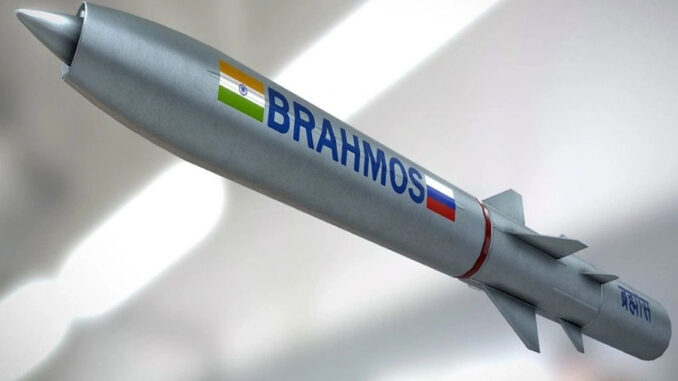
On May 7, India launched Operation Sindoor, targeting terrorist camps and strategic positions in Pakistan and Pakistan-occupied Kashmir (PoK). After Pakistan attempted to retaliate militarily, its efforts were swiftly neutralized. India responded with a precision airstrike using the BrahMos-A missile, hitting one of Pakistan’s major airbases and sending a strong message across the border.
This operation has not only embarrassed Islamabad but also sparked serious concerns within Pakistan’s defense circles. Military experts and analysts in Pakistan have publicly acknowledged that the country currently lacks the capability to counter India’s advanced BrahMos-A air-launched missiles.
Pakistan’s top military experts admit their air defense systems can’t stop India’s deadly BrahMos-A missile

💣 BrahMos-A: India’s Supersonic Game-Changer
The BrahMos-A is a supersonic cruise missile developed jointly by India and Russia. It can be launched from aircraft and travels at a speed more than three times the speed of sound, with a range exceeding 400 km. Its speed, pinpoint accuracy, and low flight trajectory make it nearly impossible to intercept.
Thanks to BrahMos-A, Indian Air Force jets can destroy strategic targets without entering enemy airspace, giving India a massive tactical edge.
⚠️ Pakistani Experts: “We Can’t Stop BrahMos”
In a televised discussion on a private Pakistani news channel, defense expert Ikramullah Bhatti admitted:
“Pakistan currently has no system capable of intercepting a BrahMos-A missile. Its speed, trajectory, and low-altitude flight profile make it almost impossible for our defense systems to counter.”
Former Air Commodore and defense analyst Adil Sultan agreed, adding:
“Once launched, there are very few options to respond to such a missile. It’s a serious challenge for Pakistan.”
🚨 Pakistan Vulnerable, India Must Stay Vigilant
This admission by Pakistani military minds has exposed serious gaps in their air defense capabilities. Key Pakistani infrastructure—airbases, command centers, radar stations—are now recognized as being highly vulnerable to Indian missile strikes.
However, experts also warn that Pakistan may attempt to develop or acquire similar capabilities in the future. Hence, India must remain vigilant and continue strengthening its technological edge.
